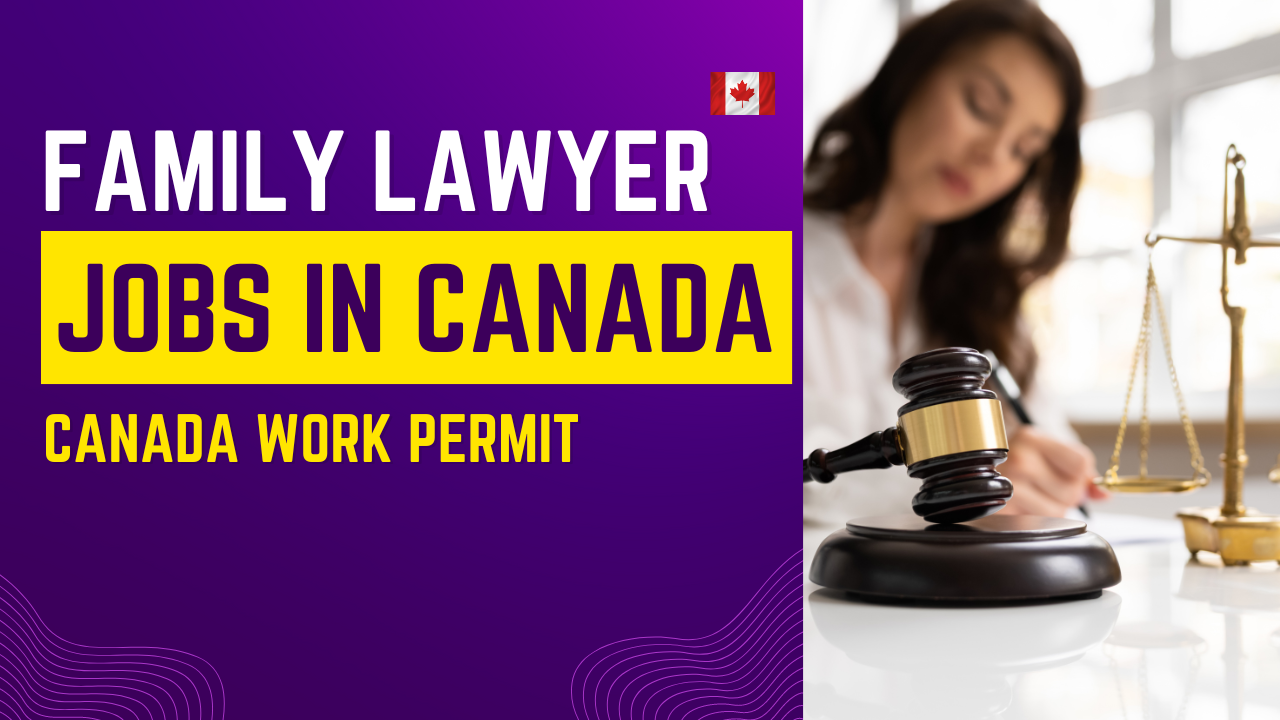Family lawyer jobs in Canada represent a vital segment of the legal profession, addressing complex issues within familial relationships such as divorce, child custody, and inheritance disputes. Aspiring lawyers drawn to this specialized field find themselves at the intersection of law and human emotion, providing essential legal counsel during significant life transitions. This article delves into the landscape of family lawyer careers in Canada, highlighting educational pathways, job prospects, and the rewarding nature of advocating for clients in matters close to the heart.
Overview of Family Lawyer Jobs in Canada

Family lawyers in Canada play a vital role in assisting individuals and families navigate complex legal issues related to family relationships. They provide legal advice, negotiate settlements, and represent clients in court proceedings concerning matters like divorce, spousal support, division of property, and child custody. The demand for competent family lawyers remains steady, reflecting the continuous need for legal resolution in familial disputes across the country.
Junior Family Law Associate Lawyer – Apply Now
Legal Counsel – Apply Now
Senior Counsel, Reuters – Apply Now
General Counsel – Apply Now
Corporate Legal Counsel (Toronto) – Apply Now
Junior Real Estate Lawyer – Apply Now
Educational Requirements and Career Path
Becoming a family lawyer in Canada typically requires the following steps:
- Undergraduate Education: A bachelor’s degree is the first step, usually in any discipline. While there’s no specific requirement for the undergraduate major, courses in law, social sciences, or humanities can be beneficial.
- Law School: Completion of a Juris Doctor (JD) or Bachelor of Laws (LLB) degree from a recognized law school in Canada is necessary. Admission to law school is competitive and usually requires a high undergraduate GPA, a strong LSAT (Law School Admission Test) score, and relevant extracurricular activities or work experience.
- Articling and Bar Admission: After graduating from law school, prospective lawyers must complete a period of articling (a type of internship) under the supervision of a licensed lawyer. Following successful completion of articling and passing the bar exams (provincial or territorial bar exams), candidates are eligible for admission to the bar and can practice law in their respective province or territory.
- Specialization in Family Law: While not mandatory, specializing in family law through additional coursework, internships, or practical experience can enhance career prospects and credibility in this specific legal niche.
Read Also: General Farm Worker Jobs in Canada With Visa Sponsorship 2024
Job Prospects and Salary
Family lawyers in Canada can work in various settings, including law firms specializing in family law, government agencies, non-profit organizations, or as self-employed practitioners. According to current trends and data, family lawyer jobs in Canada offer competitive salaries, with the potential to earn significantly depending on experience, location, and client base. High CPC keywords associated with family lawyer jobs in Canada include “divorce lawyer salary Canada,” “family law attorney Toronto,” and “child custody lawyer Vancouver,” reflecting the lucrative nature of these positions and their relevance in legal services.
Steps to Pursue a Career in Family Law
- Research and Preparation: Begin by researching law schools in Canada and their admission requirements. Network with practicing family lawyers to gain insights into the profession.
- Law School Application: Prepare thoroughly for the LSAT and submit applications to law schools that offer strong programs in family law.
- Articling and Bar Admission: Secure an articling position and diligently prepare for the bar exams to become licensed to practice law.
- Build Experience and Reputation: Early in your career, focus on gaining experience in family law matters. Build a reputation for integrity, competence, and empathy, which are crucial qualities in this field.
- Continuing Education: Stay updated with developments in family law through continuing legal education courses and seminars.
Read Also: Warehouse Jobs with Visa Sponsorship in Canada 2024-2025
Conclusion
Family lawyer jobs in Canada offer a challenging yet rewarding career path for individuals passionate about helping families navigate legal challenges and disputes. With a solid educational foundation, dedication to ongoing learning, and a commitment to serving clients with empathy and expertise, aspiring family lawyers can forge successful careers in this dynamic legal field. Whether in major cities like Toronto, Vancouver, or smaller communities across Canada, opportunities abound for skilled family lawyers to make a meaningful impact in the lives of their clients and communities.
In summary, pursuing a career in family law in Canada involves rigorous education, practical training, and a deep understanding of legal principles related to family relationships, ensuring a fulfilling and prosperous professional journey in the legal profession.
